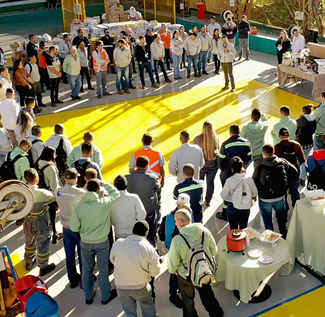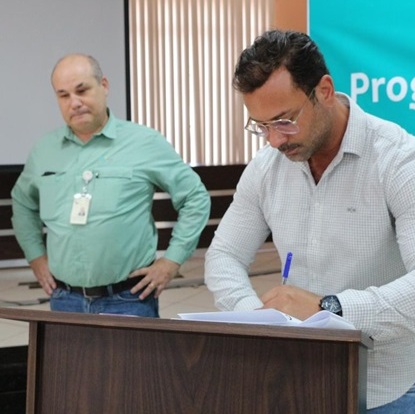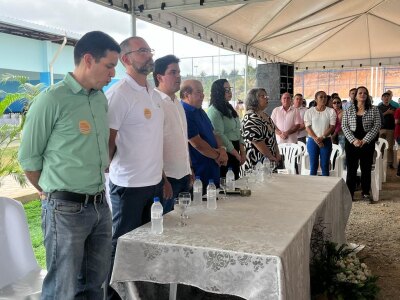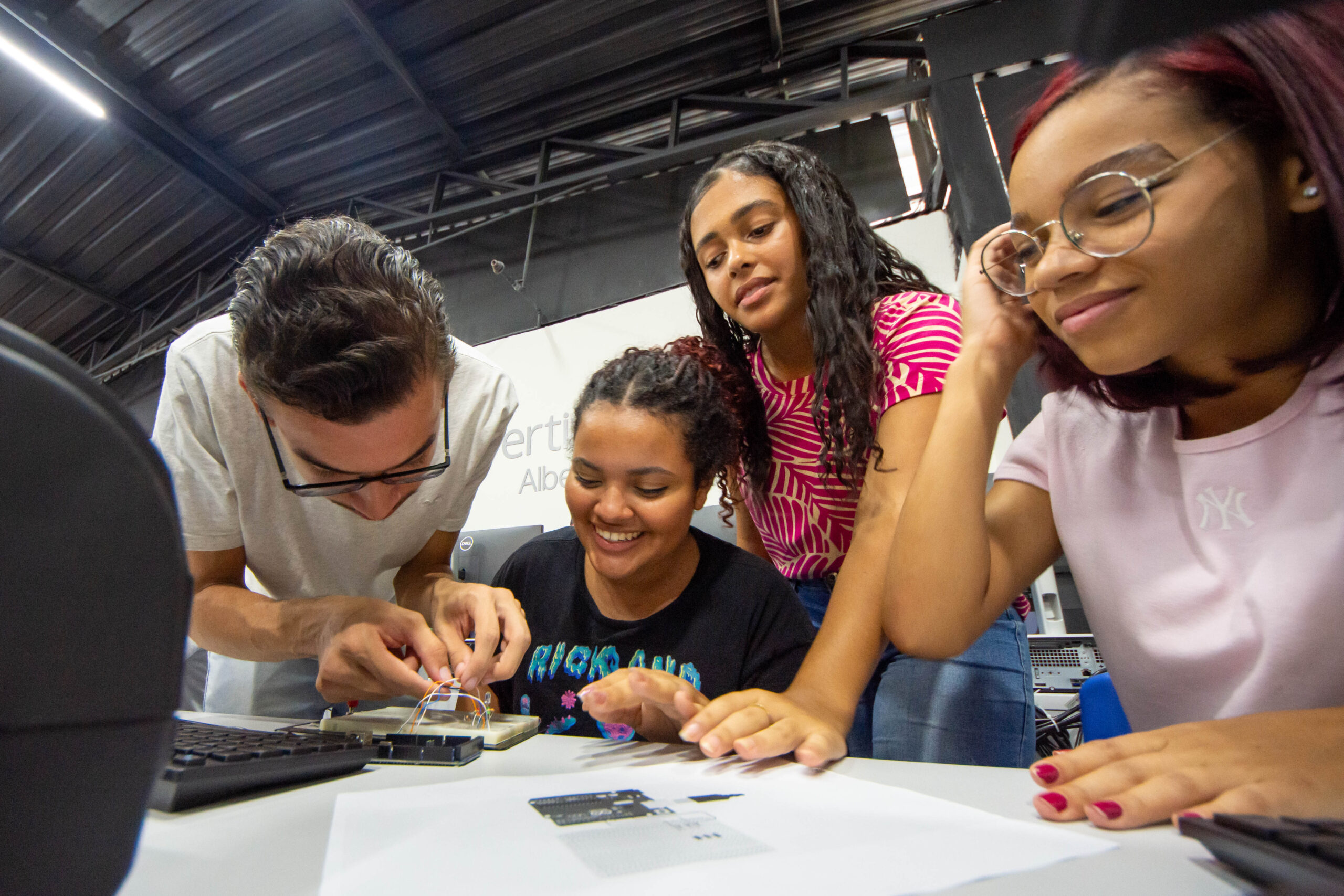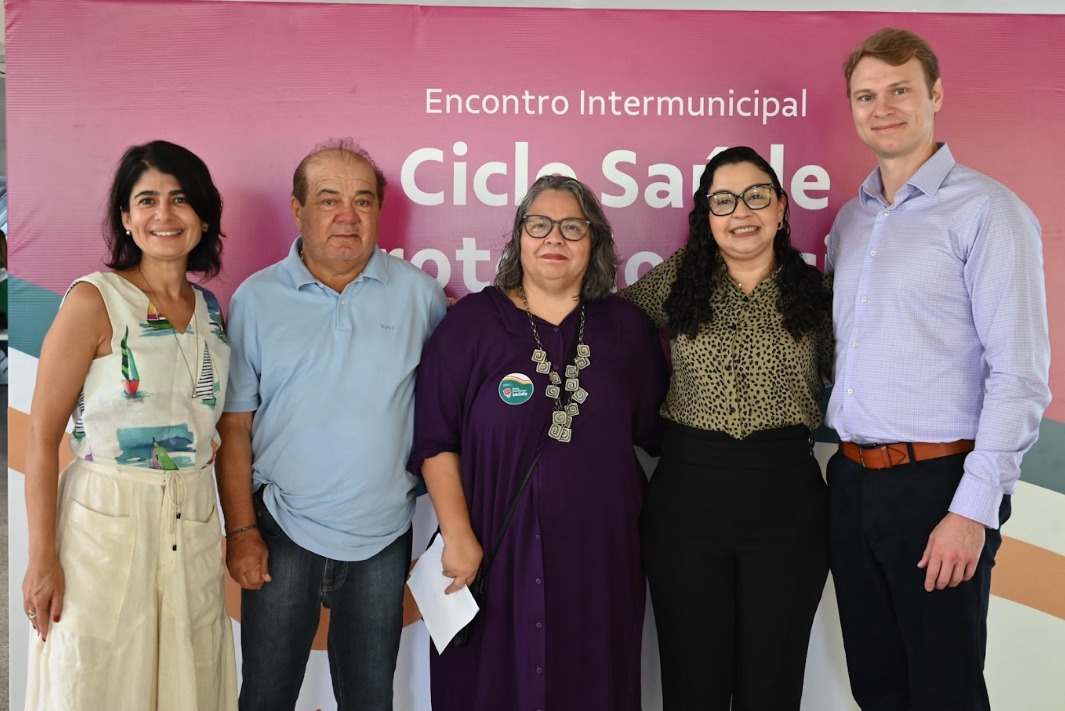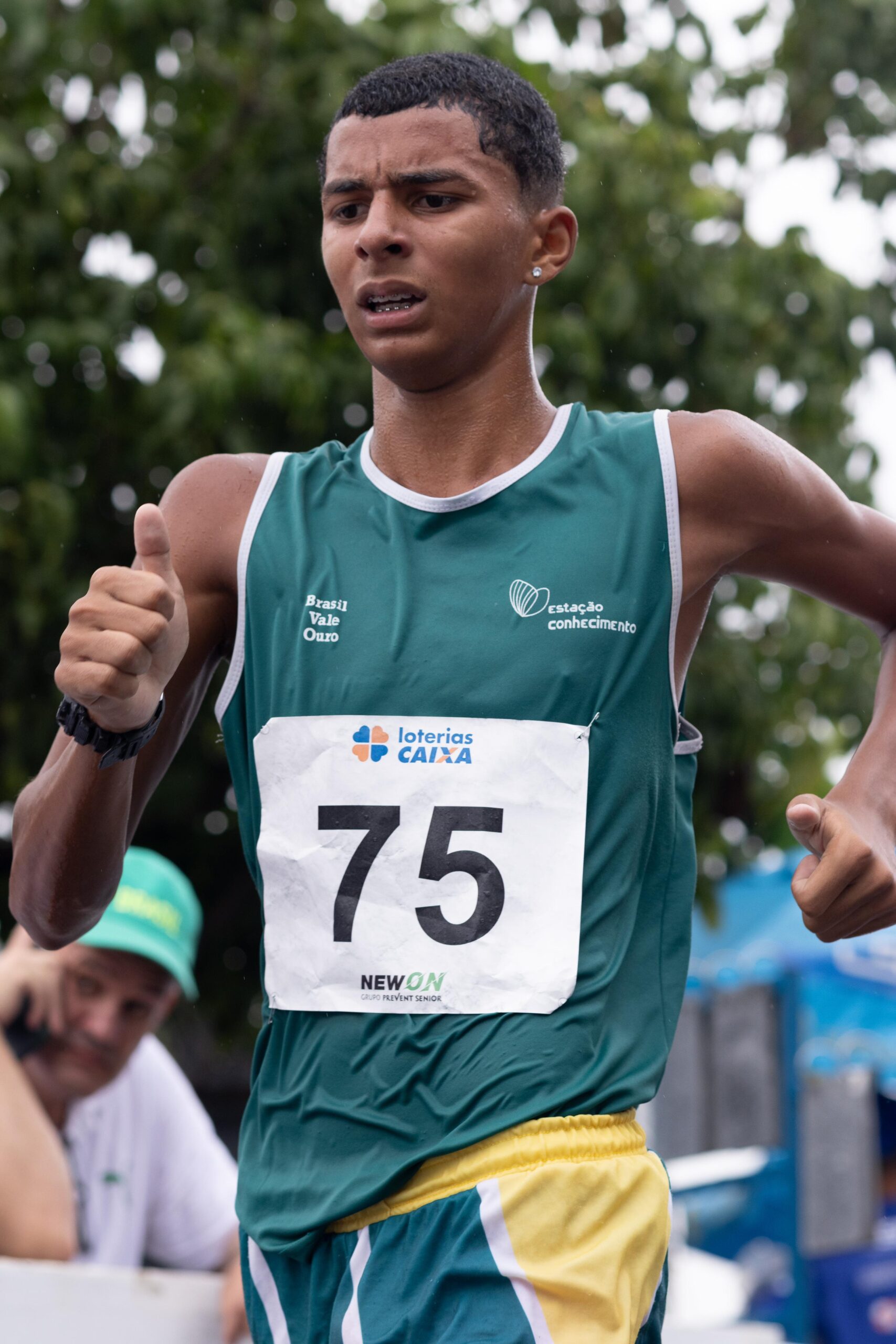Vale Foundation expands Education and Health Program for the municipalities of Itaguaí and Mangaratiba, in Rio de Janeiro, and Serra and Cariacica, in Espírito Santo

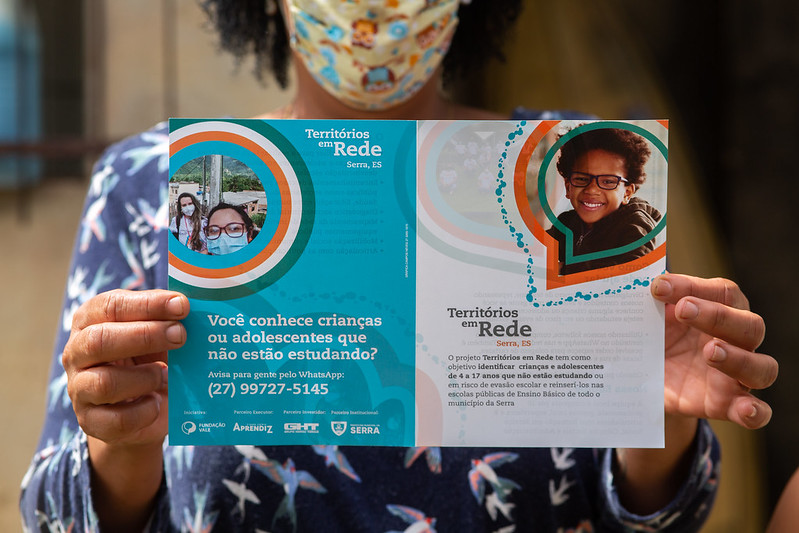
The “Education and Health Program” operates through three initiatives that seek to build an intersectoral agenda to improve education, health and social assistance in the municipalities in which it is implemented. The program began in eight municipalities of Pará and expanded to Rio de Janeiro, in the municipalities of Itaguaí and Mangaratiba and in Espírito Santo, to the municipalities of Serra and Cariacica.
The performance of the Education and Health Program is developed from the union of projects already developed by the Vale Foundation: the Literacy Trails, in partnership with the Educational Community (CE CEDAC) based on the experience of the project in the 24 municipalities of Maranhão of the Carajás Railroad (EFC); the Health Cycle Program, implemented by the Health Promotion Center (CEDAPS) with a history of operation in several municipalities; and the Networked Territories, carried out with Cidade Escola Aprendiz.
Education: improvement of learning and literacy practices
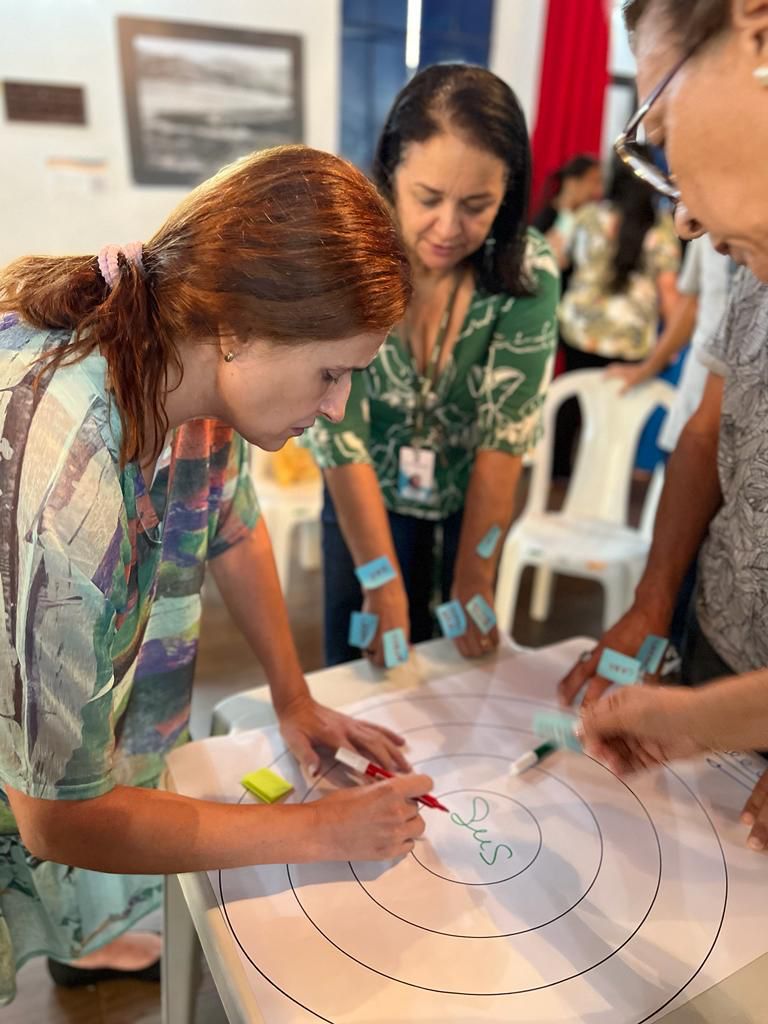
The Literacy Trails project, a partnership between the Vale Foundation and the Educational Community (CE CEDAC), is the main responsible for the program’s performance in education. The initiative aims to structure and implement a project to improve Basic Education, focusing on the early years of Elementary School. The strategies seek to reduce illiteracy levels and develop the reading, writing and mathematics practices of children enrolled up to the 3rd year.
The program was extended to the municipalities of Serra Cariacica, in Espírito Santo, Mangaratiba and Itaguaí, in Rio de Janeiro, to face an old situation of learning lag in the areas of Portuguese language and mathematics that worsened even more during the pandemic period.
In each state, an Educational Development Arrangement will be developed with the objective of inter-municipal cooperation to understand and overcome regional educational problems. This mechanism allows participants to discuss solutions through the sharing of knowledge and experiences among professionals from municipalities with similar geographical proximity and social characteristics.
The Literacy Trails works from the survey of the knowledge and practices of the teams, the training needs of education professionals and analysis of the knowledge of students from 1st to 3rd grade. From this diagnosis, a training plan is developed that includes actions with technicians from the education department, school managers, pedagogical coordinators and teachers. In 2022, the first cycle of training of these professionals was carried out. With 11,235 students benefited from the project in the municipalities of Itaguaí and Mangaratiba, in Rio de Janeiro. In addition, 61 education units benefited from the donation of 61 items and the training of 246 education professionals. In Serra and Cariacica, Espírito Santo, 51,995 students benefited, 145 items were donated to 145 education units and 235 educators were trained.
The Networked Territories project aims to guarantee the right to education and strengthen the social protection network to directly reach the public of high social vulnerability in the peripheries and poorest regions of cities through active search and home visitation. In order to combat school exclusion, the focus of the project is to ensure that children and adolescents have access to the right to study, which requires an understanding of the social context of these children and their families, as well as field teams prepared to identify the problems that lead to school exclusion and propose solutions.
For this, actions of social mobilization, sensitization of local institutions and home visits are carried out, the mediation of social demands with the offer of educational opportunities that integrate public policies and civil society through a schedule of training for education and social protection teams through direct articulation with public agents in the territories, aiming at the possibility of providing the basic conditions for the integral development of children and adolescents.
In Serra (ES), the initiative began in 2020. In 2022, the project mapped 1,346 students out of school or at risk of school dropout, reintegrating 1,812 students into the education system in 177 supported education units. In Rio de Janeiro, the project is in the process of being implemented with municipal networks.
Health and Social Protection: bringing together strategies for guaranteeing rights
Brazil has the Unified Health System (SUS) and the Unified Social Assistance System (SUAS), which organize their actions in basic levels of care. These services are present in Brazilian municipalities and directly reach the population. The Health Cycle Program aims to strengthen disease prevention and health promotion initiatives with a transversal policy of SUAS, with managers and professionals in the areas of Health and Social Assistance more qualified and with better technical and material conditions for a performance that makes a difference in the territories.
The actions are organized based on the experience accumulated by the Health Cycle Program in the territories with emphasis on active and participatory methodologies, recognized and with results. The planning and execution of actions are defined according to the characteristics of each territory.
In Itaguaí and Mangaratiba, in Rio de Janeiro, 15 CRAS were supported in the last year. There was a donation of 357 items to the UBS or CRAS in the period and 88,996 users of SUS or SUAS beneficiaries. In Serra and Cariacica, Espírito Santo, there was support for eight CRAS, 20 UBS beneficiaries and 381,671 SUS users or SUAS patients.
The Health Cycle Program takes place through several fronts of action:
- Pact – Cooperation term: The cooperation term is the document signed by the partners with the objective of establishing the guidelines and actions of the program in the municipality, supporting its performance since implementation.
- Equipping – UBS and CRAS: Acquisition and delivery of furniture, equipment and educational materials that enable the improvement of actions in health promotion and basic social protection, and offer technical working conditions for the UBS and CRAS teams.
- SUS and SUAS – Primary care (Permanent Education/Management Support): Strengthening of professionals and public health and social assistance policies through workshops and work groups.
- Geoplanning: Provide instruments to municipal management teams (SUS and SUAS) to strengthen technical analysis capabilities based on the characteristics of each territory. The objective is the strategic use of information for decision-making and intervention on the local reality.
- Communication (Technical-scientific productions): Development of educational, instructional and didactic content and materials to support the actions of the different fronts in the program.
- Monitoring and evaluation: Responsible for the management of the Program database, through the structuring and organization of information, generating subsidies for the monitoring and evaluation processes.

